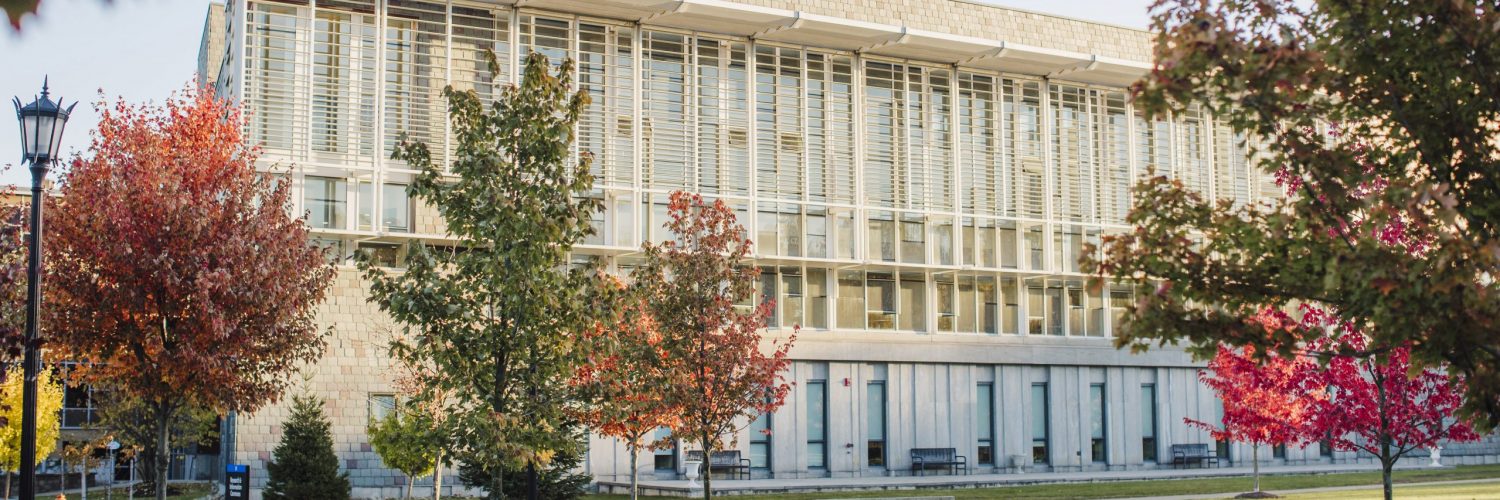Contact Information
phone: (716) 839-8366
daemen.edu/sustainability
Chair
Caitlyn Montross
(716) 839-8405
Degree Offered
- Bachelor of Arts in Global and Local Sustainability (currently not accepting new students)
Minor
Admission to Upper Division
In the second semester of the sophomore year, the student is required to make a formal application (to the Chair of the Sustainability Department) for admission to the upper division. Transfer students (both from other institutions and current Daemen students who wish to declare a major in the Global & Local Sustainability department) will be accepted as lower division students.
Requirements for admission to upper division:
- Overall grade point average (GPA) of 2.0.
- A minimum grade of C in: CMP101; ENS201; SUST140; SUST240.
- A grade point average (GPA) of at least 2.25 in the courses referenced above.
- A minimum grade of C in all courses taken to date which are required courses in the major section of the curriculum.
- Submission of an essay reflecting on previous community work, travel experiences, and future career goals.
Residency Requirements
While there are no residency requirements prior to admission to the upper division, students completing coursework at Daemen University will receive priority for admission based on tenure with the University as well as performance and the amount of coursework taken at the University.
Graduation Requirements
An overall grade point average (GPA) of 2.00.
Pertinent Additional Information
Students are required to complete one or more community-based international experiences subject to the approval of the Department Chairperson. The experience(s) may include internships, volunteer opportunities, additional language studies, or pre-approved studies taken elsewhere. The experience(s) may or may not result in credit earned.
Students select an area of specialization within the major with the approval of the Department Chairperson. This can include coursework from a single academic discipline or a combination of study areas.
Mission Statement
The mission of the Global and Local Sustainability Department is to prepare students to be compassionate and informed citizens working to create and maintain sustainable communities locally and around the world. Through its interdisciplinary and experiential emphasis, our program fosters the skills to solve problems creatively and with cultural sensitivity, while developing graduates who can communicate solutions with clarity and confidence and identify new approaches to restore the environment, create economic and intellectual capacity, and promote social well-being.
Program Objectives
- To provide students with knowledge of the three pillars of sustainability – social, environmental, and economic sustainability.
- To provide students with essential interpersonal and organizational skills necessary for collaborating with diverse community partners.
- To empower students to play an active role in their local and global communities, considering social and environmental responsibility in their decision-making.
- To provide internship opportunities for students to further their intellectual and creative skills in economic and social development, cultural and historical preservation, and environmental careers in government, not profits and private businesses.
- To develop creative problem-solving skills to address interdisciplinary challenges of sustainability.
- To build an understanding of the concept of place and the connections between people and their natural, built, and social environments.
Learning Objectives
As a result of this program, a student will be able to:
- Obtain, evaluate and integrate information across disciplines to act as informed active citizens in their local and global communities
- Work effectively with individuals across disciplines to identify problems, develop creative solutions and implement action plans with community stake-holders and leaders
- Recognize the importance of biodiversity and the multiplicity of cultures that are found locally, nationally and globally
- Critically analyze data, develop logical interpretations and draw informed conclusions
- Communicate clearly in both written and oral form using appropriate vocabulary and presentation style for the audience
- Recognize the connections among social and environmental responsibility choices, personal values and ethical decision-making
- Explain the concept of place and the connections between people and their natural, built and social environments
